Background
A few months ago I found some cheap plane tickets out of Greenville, SC, and realized I had about a week’s worth of time around Thanksgiving break.
Greenville → Charlotte → London → Venice
I found Heathrow underwhelming for how famous it is. Seemed like any other airport to me, but that’s only from an hour there. Some European airports tend to send a lot of buses across terminals rather than any dedicated trains or walkways. I’ve experienced that in London and Frankfurt. Not sure if it’s COVID or construction related.
I personally find Venice cramped for the reasons I found the insides of Amsterdam cramped: the canals. While they make for good photos, I personally feel at risk around them because of falling in. They aren’t any different from car-packed streets that force pedestrians to the edges. Vienna, on the other hand, has one of the best street-sidewalk balances of any place I’ve visited.
Venice → Feltre
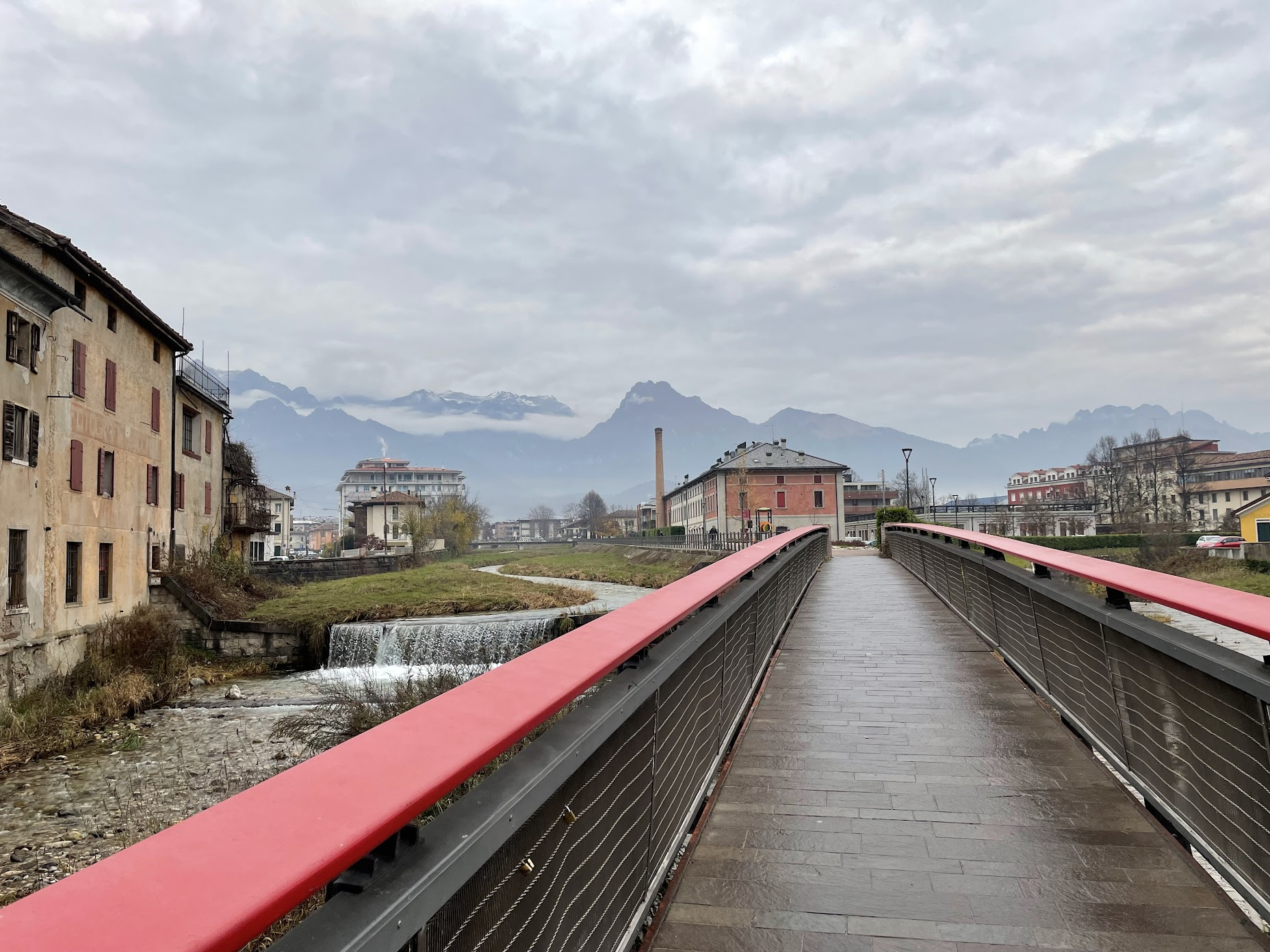
My friend lives in a small town south of the alps, so we took a regional train there. The pattern of smaller cities connected by train is something I’ve seen in Italy, France, and Germany. I wonder how that development pattern occurred—was it EU led? Something that happened after the war? Or did most people on the continent just prefer that so it seemed the natural solution?
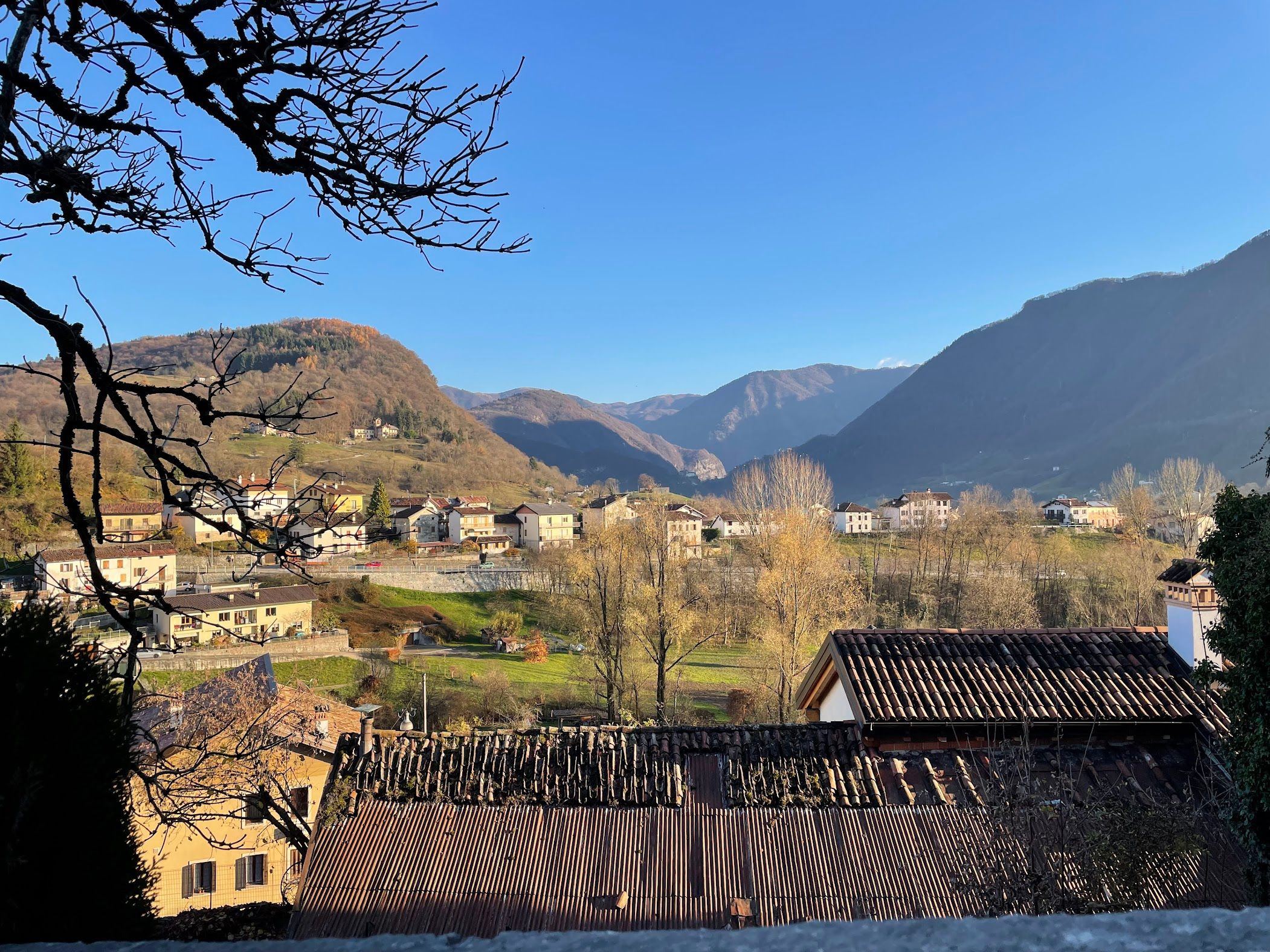
As a town of only 20,000 people, I honestly expected it to be something like the countryside with nothing around. Yet somehow it was a fully functional unit, complete with: restaurants, bars, tailors, supermarkets, hairdressers, clothing stores, department stores, pharmacies, you get the point.
And if you imagined something of that size in the United States, you’d get: Walmarts, Dollar Generals, banks, maybe the post office and UPS store, and a few restaurants scattered here and there, all over a huge area.
Here are some funny posters I saw. I believe it’s a tradition for the graduating class, and the text says it’s from the university in Venice, but the town is actually Belluno, slightly north of Venice.
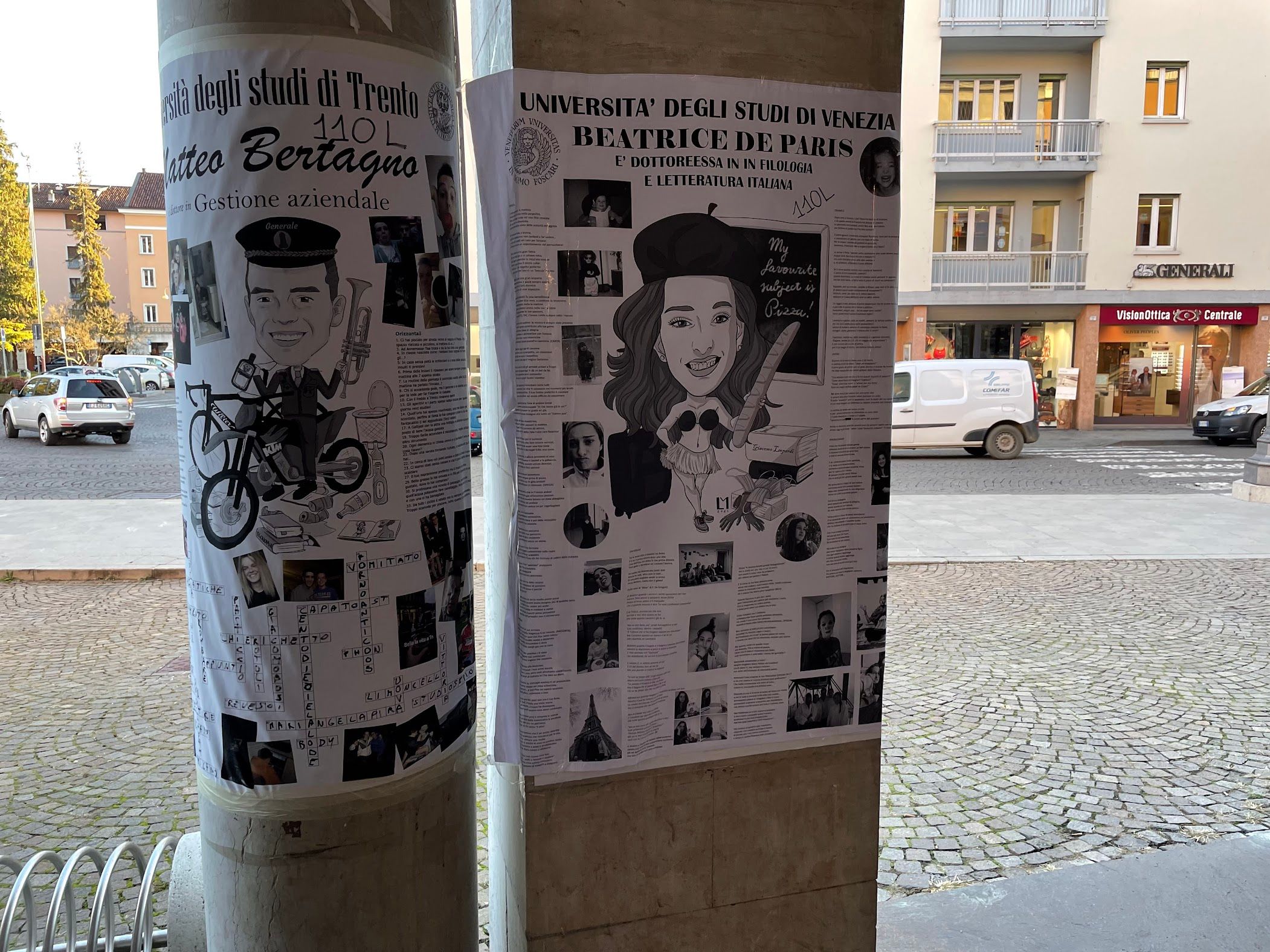
Thoughts
I hypothesize that a lack of density and commodification of labor as employees of large chains in the US has led to a decrease in cultural amenities, food quality, health quality, mental stability, creativity, and many other quality of life factors. And while monotony may be useful in the sense that you know what to expect no matter where you go, it’s not fun to be around if you know how much better things could be.
Also, American obesity is not a personal moral deficiency but a systemic structural issue. You can’t do much when you have to work 8 hours a day, commute 1 hour, and still make enough time for yourself to eat and exercise. I walked 2-3x more than what I usually do that week in Europe than what I do in the US. I ate better because there were better choices around me. Americans can overcome their environment by partitioning time specifically for exercise, but that tends to work for those with high powered careers who can have the money and willpowder to do so. I’d rather have health as an equal right.
Moreover, there’s a cultural focus on recycling. We had a problem at BMW where employees believed the recycling was just going to the dump, so they’d throw in batteries which would cause fires at the recycling center down the line. When you’re faced with trying to improve recycling, you can’t directly compare it to other places because kids are taught from a young age about what to do. My friend brought up another good point—the US is strange for not recycling because of its wealth. Poorer places can’t recycle because they don’t have the infrastructure. Incentives, too, work. I remember can receptacles in Boston supermarkets. A friend stated the streets of Charlotte are full of brick walls because of some local law. Legislation can shape the values and culture of the people.
Diversity, Food, and Culture

The food was great because of the diversity of the place. Vegetables in the store are seasonal, and there are some plants and foods that can only be found in one region of Italy.[^1] Culture, too, plays a large part. There’s an emphasis on food and knowing how to cook things from a young age—a teenager might not be able to cook fancy food, but they’d get all the fundamentals down.
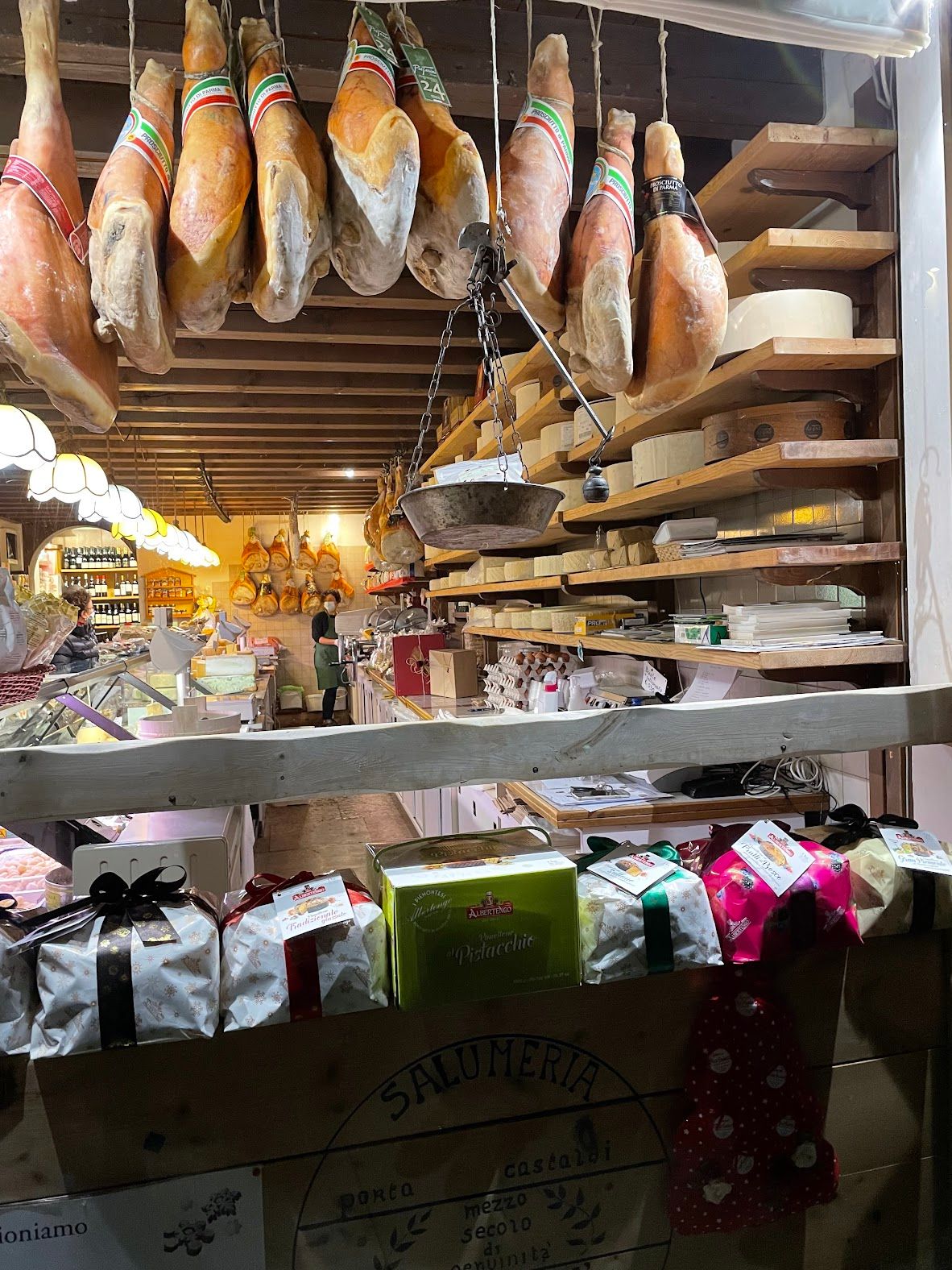
[^1]: The pictured vegetable is Radicchio di Treviso, local to only that region of Italy.
My flight departed out of Frankfurt as I know people there. I grabbed breakfast with some people from CBYX 37 and then stayed just a night only to wake early. In retrospect, I wish I would’ve stayed only in one place. Going from Italy to Germany is not as close as it seems, and I feel past the point of an overnight Flixbus. I wish I had spent another day in Frankfurt, but it wasn’t possible because Feltre is a small town without major rail connections. That’s something I should plan ahead next time—if I’m going to a small place, know whether or not I can get out myself. In my case I needed a ride to a nearby train stop. I didn’t want to burden the friends I was staying with by leaving suddenly.
Also of note: The gardens along the train tracks in Germany are Schrebergarten, where people can have a natural retreat and grow some vegetables. I’m glad they’re not actually some slums, which I suppose is a very American way of looking at things because we see things much like this all the time when driving around highways.
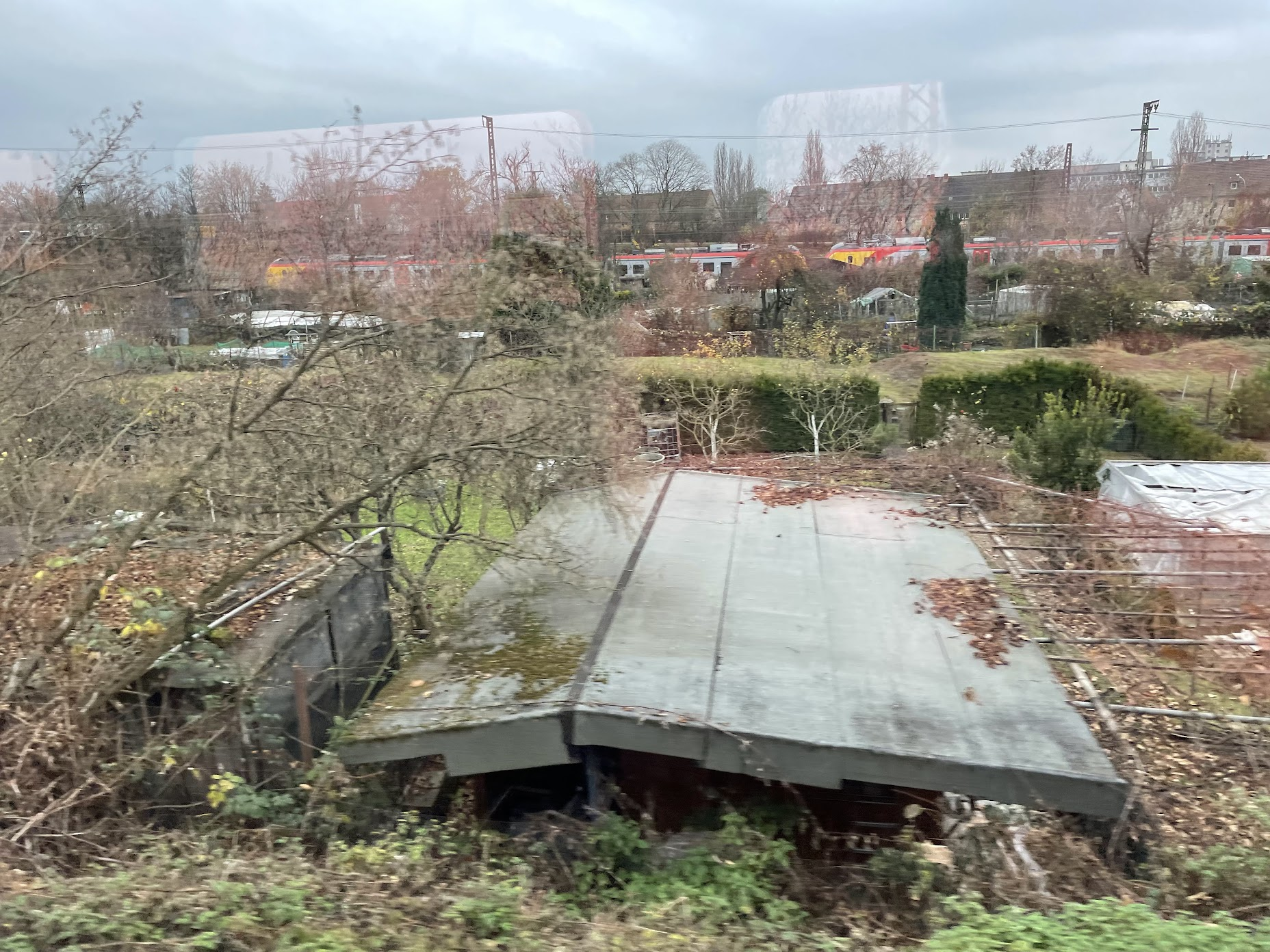
Conclusion
After this trip, I am sure of the type of life I want to live, and driving every day to work isn’t part of it. In the United States, I think only the Northeast Corridor would meet what I want. I’m not against the West Coast—I haven’t travelled there yet, so we’ll see when it comes to that. Expat life could work as well. For me, I’ve only got to consider getting good enough at Computer Science so that by the time I graduate, I can have options rather than picking the first thing I get.